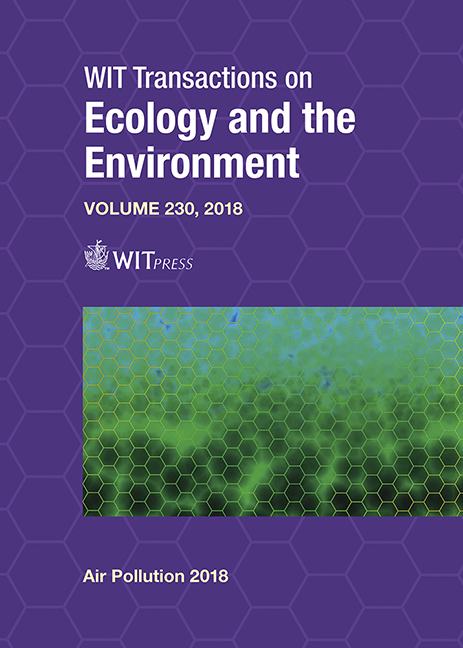AIR POLLUTION IN DELHI: A REVIEW OF PAST AND CURRENT POLICY APPROACHES
Price
Free (open access)
Transaction
Volume
230
Pages
11
Page Range
441 - 451
Published
2018
Paper DOI
10.2495/AIR180411
Copyright
WIT Press
Author(s)
LAURA DE VITO, TIM CHATTERTON, ANIL NAMDEO, SHIVA NAGENDRA, SUNIL GULIA, SANJIV GOYAL, MARGARET BELL, PAUL GOODMAN, JAMES LONGHURST, ENDA HAYES, RAKESH KUMAR, VIRENDRA SETHI, SENGUPTA B. GITAKRISHNAN RAMADURAI, SHOBAN MAJUMDER, JYOTHI S MENON, MALLIKARJUN
Abstract
Delhi National Capital Region (Delhi NCR) is facing serious challenges linked to worrying levels of air pollution (mainly NO2, PM10 and PM2.5). The CADTIME prject (Clean Air in Delhi through Implementation, Mitigation and Engagement) aims to understand what is required to deliver significant reductions in levels of air pollution. This paper presents the results of the first stage of the project: it firstly contextualises the challenges of air quality management in Delhi within the broader evolution of environmental policies and governance in India, with particular consideration to the tensions between environmental protection and the country’s development objectives. Secondly, it sets out how CADTIME will combine multiple source qualitative and quantitative data to develop an air quality action plan and an implementation strategy. In particular, through two workshops with local and national experts and stakeholders, and two rounds of focus groups with citizens of Delhi we will contrast stakeholders’ priorities and preferences for existing and potential solutions to air pollution with citizens’ lived experiences, thus assessing the political/technical feasibility and public acceptability of current and proposed measures. Furthermore, we will complement the primary qualitative data with a critical review examining the successes and failures of UK and European policies to draw lessons that can be relevant for Delhi and to avoid ineffective policies and achieve cost-effective solutions for the city in the shortest possible time.
Keywords
air quality management, Delhi, mitigation strategy, interventions, public engagement





